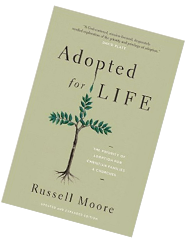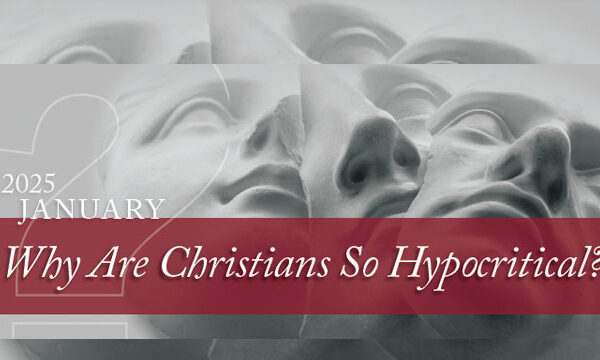Back to series
Two Exceptional Women


Recommended Reading:
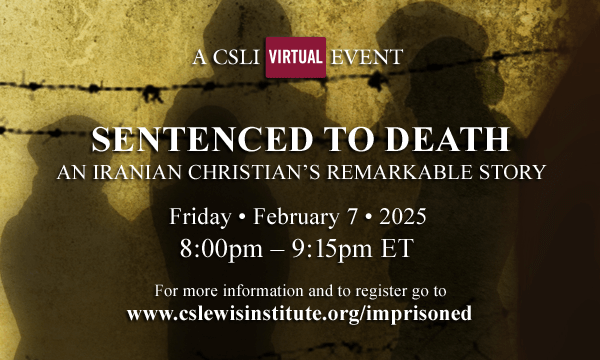
Two Exceptional Women
and One Extremely Fortunate Son
Click here to open a Print - Friendly PDF
In the spring of 1962, “Jean” was eighteen years old, pregnant, unmarried, and scared. Her boyfriend wasn’t interested in marriage or raising a child. Her whole world was changing before her eyes, but she never considered abortion. In December 1962, she gave birth to a healthy baby boy. On September 7, 2017 — almost fifty-five years later — I discovered that I am that child. From this discovery, I have reflected in new and deeper ways on three essential truths.
I Didn’t Deserve to Die, but My Life Required Her Courage
I always knew I was adopted, and this made me very thankful for the gift of life, assuming my mother might have been tempted to abort me. Now that I know more of her situation at the time, I am even more thankful that I received the gift of life.
 My mother was just finishing her senior year of high school. For her and her classmates, the future was bright. They had their entire lives before them and many opportunities. But then she discovered she was pregnant. Oh, no – this wasn’t in the plan! It was not what she had dreamed about. It was not the future she had envisioned.
My mother was just finishing her senior year of high school. For her and her classmates, the future was bright. They had their entire lives before them and many opportunities. But then she discovered she was pregnant. Oh, no – this wasn’t in the plan! It was not what she had dreamed about. It was not the future she had envisioned.
She faced a monumental choice – both for her future and mine. Abortion was not legal but was obtainable. If she aborted me, she could get her life back on track. She could stay in high school without the shame of being pregnant out of wedlock (a severe stigma in 1962). She could graduate and pursue any of many opportunities that would open back up to her. She could put this “mistake” behind her and move on with her life.
But she knew I wasn’t a “mistake.” I was a person. I was a tiny, not fully formed, incommunicative, innocent, needy person who happened to be living inside her for the time being. I was not a part of her body. I had my own DNA, my own bodily functions, and my own ability to grow and develop as a separate person.
And so she knew that I didn’t deserve to die. I was guilty of no crime worthy of the death penalty. Her and her boyfriend’s choice to have sex that spring night didn’t mean that I should be killed off. She intuitively knew that wasn’t right; she knew I deserved to live, no matter how hard that would be for her. And so, as she told me, “I never considered abortion, even for a second.”
Instead, she decided to go through with her unwanted pregnancy. I can’t imagine the courage it took. But Jean was a woman who understood well what she must do, no matter how hard and no matter the consequences. It was just the right thing to do.
That is what courage is: doing what is right and necessary, even when — and especially when — it is hard. I can’t imagine how hard it was for this young, scared, high school senior. I will be eternally grateful to Jean for her courage during those decisive months in the spring and summer of 1962. She and I have visited by phone and in person now, and it was an honor and a joy to be able to express this to her in person. She is a model and encouragement for me to likewise stand up for others who are in need and use my power in courageous and redemptive ways.
The “Messiness” of Unconditional Love
The details of Jean’s time with me growing inside her womb paint an excellent picture of what unconditional love looks like. It is easy for us to talk about loving “unconditionally.” But we often fail to follow through when we realize just what this will mean and what it will cost us. My and Jean’s short time together illustrates this for me in new and nuanced ways.
As we have talked, I’ve learned much about what her pregnancy in 1962 meant. Her mother made her leave her hometown and live in a home for unwed mothers about an hour away until she gave birth. Moving to that facility meant leaving all she knew during this emotionally heart-wrenching season. Her parents were not there for her to help her process the experience. She could not be with or talk to her friends. She no longer had the comfort of familiar surroundings and routines or a sense of stability. Was it still worth it? Jean believed so. She knew this is what unconditional love looks like. No matter what, she was committed to put my need to grow in her womb above any need she felt for safety, comfort, or well-being.
During those long days and nights, I’m sure she thought often that after my birth she could not continue to provide the nurturing environment I needed to flourish. She had not finished high school, had no job, and would be living with her parents. In the early 1960s, there were few services and support systems for an unwed mother with a young child. She knew the most loving thing to do, after giving me life, would be to give me away.
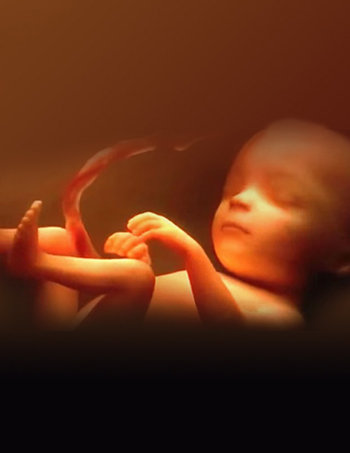 But her heart was aching to keep me. If she gave me up for adoption, she would probably never see me again. She would never know if I looked like her, shared her personality, or had the same interests. She would never experience me telling her “I love you, Mom.” She would not see me grow up, and she would always wonder if things were going well for me. She would not be there to comfort me when down and to cheer me on when doing well.
But her heart was aching to keep me. If she gave me up for adoption, she would probably never see me again. She would never know if I looked like her, shared her personality, or had the same interests. She would never experience me telling her “I love you, Mom.” She would not see me grow up, and she would always wonder if things were going well for me. She would not be there to comfort me when down and to cheer me on when doing well.
Deciding whether or not to give me up for adoption was a dilemma that only unconditional love could solve well. How painful it must have been day after day and night after night. But Jean knew that unconditional love required letting me go. For the next fifty-four years, she would live with unanswered questions – the price of unconditional love, again doing what was best for me at her expense, with nothing in return and nothing to show for it.
Throughout the years, I have wondered why my mother would give me away. Did she not love me? Now I know that she not only loved me but loved me in such a complete, unselfish, and unconditional way that she was willing to sacrifice so much, in so many ways, to protect and provide for me. I have now been able to thank her for this several times and will again when we talk again. Her example helps me better understand the depth and breadth of true love, as expressed in 1 Corinthians 13:4–8:1.1
• Love is patient — during the long months of Jean’s pregnancy, when each day was a blur of emotional trauma and uncertainty.
• Love is kind — Jean’s desire for my best, knowing the heartache it would cause her not to know me and always wonder about me.
• It does not envy — Jean’s commitment to do what would lead to my flourishing, choosing not to be envious of the one who would raise me.
• It does not boast: it is not proud — Jean’s humbling of herself by continuing the pregnancy for my sake, even though it meant being shunned by her family and not graduating with her friends.
• It does not dishonor others: it is not self-seeking — Jean’s not dishonoring me by seeking her comfort and well-being over mine (by ending the pregnancy).
• It is not easily angered: it keeps no record of wrongs — Jean’s endurance of all she went through without resorting to an abortion out of anger or because “this isn’t fair!”
• Love does not delight in evil but rejoices with the truth — Jean’s not choosing evil, but embracing the truth that I was a little person taking up temporary residence inside her.
• It always protects, always trusts, always hopes, always perseveres — Jean’s protecting and preserving my life, trusting there was a future and a hope for me before I was even born.
• Love never fails — Jean’s endurance of the physical and emotional trauma day after day until my birth and then following through on her desire to give me a way to flourish.
In 1962, my adoptive mother, Doris, desired to provide motherly love to a child who needed a good home. So she began pursuing adoption. Hers was also a very courageous choice. In the early 1960s, adoption was not very common, and there were many uncertainties. How would others react? How would she respond as the reality set in, that her son didn’t share her looks or personality? Without the tie of biology, would her son accept her as his mother? What would be the implications for her, and her son, of always knowing there was another woman who was also his mother?
 But she was a woman of great courage, willing to face these challenges with grace and poise. She told me of my adoption at an early age and was always open with me and others who asked about it. No matter how others reacted, she affirmed my value and her commitment to me. I valued her transparency and affirmation, knowing she embraced this reality without any regret or chagrin.
But she was a woman of great courage, willing to face these challenges with grace and poise. She told me of my adoption at an early age and was always open with me and others who asked about it. No matter how others reacted, she affirmed my value and her commitment to me. I valued her transparency and affirmation, knowing she embraced this reality without any regret or chagrin.
Doris never communicated any fears she may have had concerning how my adoption could affect our relationship. Her courage in facing this uncertainty made it easy for me to fully embrace her as my mother. She has been and continues to be my true mother and I her son, in every way besides biological.
(Interestingly, over the years many people who didn’t know I was adopted have commented on how much we look alike and have similar personalities! These resemblances were special graces of God, I believe, rewarding her courage.)
Doris continually expressed to me unconditional love in so many ways. It was not conditioned on my origin or behavior, who I was or what I did. Such unconditional love is hard for me to fathom. I certainly did not make mothering easy for her. I was a stubborn, opinionated, and strong-willed child. I made many mistakes and messes. Through it all, she has loved me as her true son. For her complete devotion I have thanked her often and continue to do so.
Doris, like Jean, put flesh on the words of 1 Corinthians 13:4–8:
• Love is patient — Doris had to be patient and was willing to wait many years to fulfill her desire to love a son or daughter. She was then patient day in and day out as she raised her rambunctious son.
• Love is kind — Doris showed exceeding kindness to this baby in need of a family, someone in desperate need of the kindness of another to have a future and a hope.
• It does not envy — Doris was never envious of the one who gave me life and shares my biology. In fact, she recently told me that each time I had a birthday, she wished she knew who my birth mother was, to be able to send a card of thanks and comfort!
• It does not boast; it is not proud — Doris was willing to forgo the pride of raising her own biological children and instead embraced raising me like her own.
• It does not dishonor others — Doris honored me every day by saying in actions and words that I was wanted and welcome in her family as a full son.
• It is not self-seeking — It took great sacrifice to make room for me in her family, but Doris was willing to do so. Then day by day she reaffirmed the choice not to seek her own comfort but, rather, my well-being, as she raised this young son to manhood.
•It is not easily angered; it keeps no record of wrongs — Doris never in anger used my adoption as an insult or way to distance or disgrace me.
• Love does not delight in evil but rejoices with the truth — Doris knew I desired to reunite with my birth mother to understand my medical history and have a sense of my genealogy. She did not want to keep me from this but rejoiced in my searching and then finding my birth mother and knowing the truth about my origins and lineage.
• It always protects, always trusts, always hopes, always perseveres. Love never fails — From the moment she brought me home, Doris protected and preserved my life, trusting there would be a future and a hope for me and never failing me in any way
Such love is the essence of adoption: having the courage to take a perfect stranger and treat that person as your own flesh and blood, loving unconditionally, giving full rights as a member of the family, and laying your life down for that person.
My adoption redeemed my life. Opportunities opened to me that my birth mother could have never provided. As I’ve reflected more on this, I’ve also seen in deeper ways what a gift our adoption as God’s sons and daughters is.
The Glory of Adoption as a Model of Redemption
When I became a follower of Christ at seventeen years of age, I began to read about God’s adoption of me into His family. I immediately saw many parallels to what I had experienced as a child whom a human family had adopted.
The words translated “adopt” or “adoption” are used three times in the Old Testament and five times in the New Testament. Two occurrences are metaphorical (Job 15:5; Ps. 106:35). The other six refer to adoption into a family.
Esther 2:15
When the turn came for Esther (the young woman Mordecai had adopted, the daughter of his uncle Abihail) to go to the king, she asked for nothing other than what Hegai, the king’s eunuch who was in charge of the harem, suggested. And Esther won the favor of everyone who saw her.
Esther, a young girl in this time and culture, was of little value. But Mordecai didn’t see it that way. He adopted her, and God ended up using her in mighty ways to bring redemption and well-being to so many others. This is a beautiful picture of how God can redeem any life and make something beautiful out of it, no matter how broken the situation.
God also did this in providing a family to adopt Moses. The royal family of Egypt could give him opportunities to flourish that his birth parents could not. And God did this for me as well. Esther, Moses, and I are examples of God’s loving-kindness – “For I know the plans I have for you . . . plans to prosper you and not to harm you, plans to give you hope and a future” (Jer. 29:11).
Romans 8:15
The Spirit you received does not make you slaves, so that you live in fear again; rather, the Spirit you received brought about your adoption to sonship. And by him we cry, “Abba, Father.”
 I’ve often thought that I didn’t deserve to be adopted by such a loving mother who offered such goodwill and love for me. But once this act of love was complete by signing the adoption papers, I immediately received all the rights and privileges of being her son, regardless of how that came to be. I was not a “second-class Wallace.” From my first day with her, she gave me the right to relate to her as my true “mommy” without fear of that relationship ever changing.
I’ve often thought that I didn’t deserve to be adopted by such a loving mother who offered such goodwill and love for me. But once this act of love was complete by signing the adoption papers, I immediately received all the rights and privileges of being her son, regardless of how that came to be. I was not a “second-class Wallace.” From my first day with her, she gave me the right to relate to her as my true “mommy” without fear of that relationship ever changing.
The same is true when God adopts us. He doesn’t just give us “access” to Him as a slave might have access to a master. The relationship is more than one of proximity. It is one of intimacy. He brings us fully into His family, as His full sons and daughters. He even lets us call Him by the name that is most intimate, “daddy” (Abba). We are His true sons and daughters. Therefore, we no longer have fear about whether this may be the day He banishes us again. He will always love and care for us as His children whom He adores. We do not deserve this. It is purely due to His goodwill and love for us.
Romans 8:23
Not only so, but we ourselves, who have the firstfruits of the Spirit, groan inwardly as we wait eagerly for our adoption to sonship, the redemption of our bodies.
The term adoption — in our society as well as biblically — is a legal term. It signifies a forensic act, authenticated by one with the power to make it so. In my adoption, this authority was the presiding judge. The State of Ohio gave him the authority to decree that I shall forevermore be of the Wallace family. This action by one empowered to make such decisions gave me the legal security that I then, and throughout my life, would have all the rights and privileges of a Wallace.
In my adoption as God’s son, the presiding authority is God Himself. He has the power and right to decree that I am legally now a part of His family. His decision to grant me adoption into His family likewise gives me the security of knowing that I will always enjoy the rights and privileges of a true son of God.
This passage also reminds us that our adoption is total — all is redeemed (literally “bought back”). In my adoption as a Wallace, every aspect of my well-being was “bought back.” My new family provided me an environment to flourish physically, mentally, emotionally, and socially, in a way that I could not have otherwise.
In the same way, in my spiritual adoption, God redeemed all that I am, body and soul. We often fall into the gnostic heresy of believing God is only concerned with our spiritual redemption. As stated in this passage, and illustrated by how my adoptive mother was concerned with my flourishing in every way, so too is God concerned with our complete well-being — body, mind, emotion, will, relationships. All is not yet entirely made right again, but someday everything spiritual and physical will be fully redeemed. We all wait eagerly for this glorious day!
Romans 9:4
… the people of Israel. Theirs is the adoption to sonship; theirs the divine glory, the covenants, the receiving of the law, the temple worship and the promises.
My adoption made me a full son, equal to any biological sons my parents may have had. In the same way, my adoption as God’s son makes me equal to any “natural” sons God has. Of course, He has one “natural” Son, Jesus, the Son who has existed eternally with God the Father and enjoyed the richness of this relationship from eternity past. Through God’s adoption of me, I am a brother of Jesus, enjoying with Him our Father’s limitless affection.
One promise I received from my natural adoption is a share in my family’s inheritance. My legacy is completely due to their good pleasure, based on my being a true son. The relationship, not my performance, guarantees this. In the same way, God, due to His good pleasure alone, chooses to share with me, His adopted son, the inheritance that He could have chosen to reserve for His “natural” Son alone. I, and all whom God adopts into His family, are blessed beyond comprehension, being “heirs of God and co-heirs with Christ” (Rom. 8:17). This should drive us to worship, thanksgiving, and service to our heavenly Father every day, in light of what He has done for us out of His great love for us, even “while we were God’s enemies” (Rom. 5:8)!
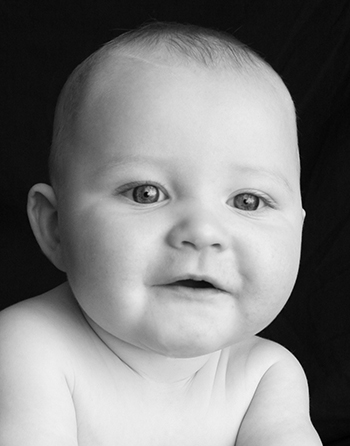 Galatians 4:4–5
Galatians 4:4–5
But when the set time had fully come, God sent his Son, born of a woman, born under the law, to redeem those under the law, that we might receive adoption to sonship.
We have all broken the eternal law of the universe by rebelling against the one true God and so were rightly condemned as criminals under the law’s demands (“everyone has sinned; we all fall short of God’s glorious standard” Rom. 3:23 NLT). In the same way, I was born physically into a broken circumstance that required redemption.
Both my birth and adoptive mothers — at just the right time, when my life was on the brink of disaster (in the womb and as a newborn) — intervened to redeem me. So too God, at just the right time, entered the flow of human history to redeem us all. He did this by sending His Son, the only One who was capable of paying the price for our redemption.
The Redeemer had to be “His Son” — fully God — to be completely holy and able to pay for another’s sins and not His own. The Redeemer also had to be God for His death to be of infinite worth as an adequate payment. The Redeemer had also to be fully human, for His payment to be an equal substitute.
Ephesians 1:5
He predestined us for adoption to sonship through Jesus Christ, in accordance with his pleasure and will.
There are three essential truths here. First, God determined before our adoption that we should be His children, worthy of inheritance. There is much debate over how this occurs. But the point here is that God always wanted us. Before we were born, He knew He would adopt us. So too, my adoptive mother, before seeing me, knew she wanted me. To comprehend this is very humbling and gives me a deep sense that I was desperately wanted and deeply loved – both by my earthly mother and my heavenly Father.
Second, through Jesus Christ, we were adopted as sons. This refers back to the legal action that God required for our adoption. Just as there were legal requirements that had to be met for me to be adopted into the Wallace family, there are legal requirements that must be met for our adoption into God’s family.
We all stand legally guilty of rebelling against the sovereign Ruler of all creation, telling Him we want nothing to do with him. As a holy Judge, He cannot look the other way and ignore what justice demands in response to such rebellion—eternal separation from His presence.
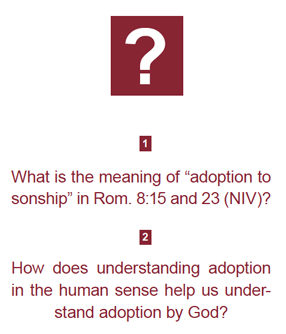 But He did not want to have to sentence us to this horrific fate. So Jesus, as the one and only “God-Man,” chose to pay the penalty for our crime, taking our place. This cleared the way for God to declare (forensically, legally) that the demands of the Law are met. He paid in full the debt we owed for our rebellion, paving the way to legally adopt us into His family.
But He did not want to have to sentence us to this horrific fate. So Jesus, as the one and only “God-Man,” chose to pay the penalty for our crime, taking our place. This cleared the way for God to declare (forensically, legally) that the demands of the Law are met. He paid in full the debt we owed for our rebellion, paving the way to legally adopt us into His family.
Third, God, like my mothers, was not compelled to do what He did. My birth mother didn’t have to give me life, and my adoptive mother didn’t have to fulfill the legal requirements to adopt me. In the same way, God did not have to endure so much to intervene on my behalf and redeem my life. But He desperately wanted an intimate relationship with me, so He chose to do so anyway. Understanding how hard it was for both my birth mother and adoptive mother to intervene in these ways to see my adoption through, and how much more difficult it was for God to intervene to adopt me into His family, causes me to be deeply thankful!
Conclusion
Adoption is a theme through Scripture. Being adopted myself, and recently reflecting on this history as I’ve met my birth mother, has helped me understand a bit more deeply what my adoption into the family of God means. I hope these reflections, by one twice adopted, are helpful to others in any circumstance.
|
Notes: |

Stan Wallace
CEOStan Wallace, was appointed President and CEO of Global Scholars in February 2014. Dr. Wallace began his ministry with Campus Crusade for Christ, he founded Cru’s Academic Initiative in order to aid faculty in integrating biblical truth into their research, publishing and teaching. In 2001, he joined InterVarsity Christian Fellowship’s graduate Student and Faculty Ministries, serving as National Director of InterVarsity’s Faculty Ministry and Founder and Director of the Emerging Scholars Network. Dr. Wallace received his BS in Secondary Education from Miami University, his MA in Philosophy and Ethics from Talbot School of Theology, Biola University (summa cum laude) and his Doctor of Ministry in “Engaging Mind and Culture” also from Talbot School of Theology, Biola University.

Recommended Reading:
Russell Moore, Adopted for Life: The Priority of Adoption for Christian Families and Churches (Updated and Expanded Edition) (Crossway, 2015)
The doctrine of adoption — God’s decision to adopt sinful men and women into his family — stands at the heart of Christianity. In light of this, Christians’ efforts to adopt beautifully illustrate the truth of the gospel. In this popular-level and practical manifesto, Russell Moore encourages Christians to adopt children and to help other Christian families to do the same. He shows that adoption is not just about couples who have struggled to have children. Rather, it’s about an entire culture within evangelicalism – a culture that sees adoption as part of the Great Commission mandate and as a sign of the gospel itself.
 COPYRIGHT: This publication is published by C.S. Lewis Institute; 8001 Braddock Road, Suite 301; Springfield, VA 22151. Portions of the publication may be reproduced for noncommercial, local church or ministry use without prior permission. Electronic copies of the PDF files may be duplicated and transmitted via e-mail for personal and church use. Articles may not be modified without prior written permission of the Institute. For questions, contact the Institute: 703.914.5602 or email us.
COPYRIGHT: This publication is published by C.S. Lewis Institute; 8001 Braddock Road, Suite 301; Springfield, VA 22151. Portions of the publication may be reproduced for noncommercial, local church or ministry use without prior permission. Electronic copies of the PDF files may be duplicated and transmitted via e-mail for personal and church use. Articles may not be modified without prior written permission of the Institute. For questions, contact the Institute: 703.914.5602 or email us.
-
Recent Podcasts
From Anti-Christian to Pastor – Brian Smith’s Story
by Jana Harmon, Brian Smith on January 17, 2025Brian grew up in a small Georgia town...Read More
-
Time With God
by Aimee Riegert, J.I. Packer on January 10, 2025
-
Faith and Reason – Henare Whaanga’s Story
by Henare Whaanga, Jana Harmon on January 3, 2025
-
Recent Publications
Why Are Christians So Hypocritical?
by Christopher L. Reese on January 1, 2025Oh, the hypocrisy of those Christians—they talk so...Read More
-
How Artists and Their Art Can Point Us to the Creator
by Russ Ramsey on December 2, 2024
-
What about Jesus’s Childhood?
by Jim Phillips on December 1, 2024
0
All Booked
0.00
All Booked
0.00
All Booked
23931
GLOBAL EVENT: Sentenced to Death with Maryam Rostampour-Keller, 8:00PM ET
https://www.cslewisinstitute.org/?event=global-event-sentenced-to-death-with-maryam-rostampour-keller-800pm-et&event_date=2025-02-07®=1
https://www.paypal.com/cgi-bin/webscr
2025-02-07

Next coming event
Days
Hours
Minutes
Seconds
GLOBAL EVENT: Sentenced to Death with Maryam Rostampour-Keller, 8:00PM ET
On February 7, 2025 at 8:00 pmSpeakers

Stan Wallace
CEO
Team Members

Stan Wallace
CEOStan Wallace, was appointed President and CEO of Global Scholars in February 2014. Dr. Wallace began his ministry with Campus Crusade for Christ, he founded Cru’s Academic Initiative in order to aid faculty in integrating biblical truth into their research, publishing and teaching. In 2001, he joined InterVarsity Christian Fellowship’s graduate Student and Faculty Ministries, serving as National Director of InterVarsity’s Faculty Ministry and Founder and Director of the Emerging Scholars Network. Dr. Wallace received his BS in Secondary Education from Miami University, his MA in Philosophy and Ethics from Talbot School of Theology, Biola University (summa cum laude) and his Doctor of Ministry in “Engaging Mind and Culture” also from Talbot School of Theology, Biola University.



